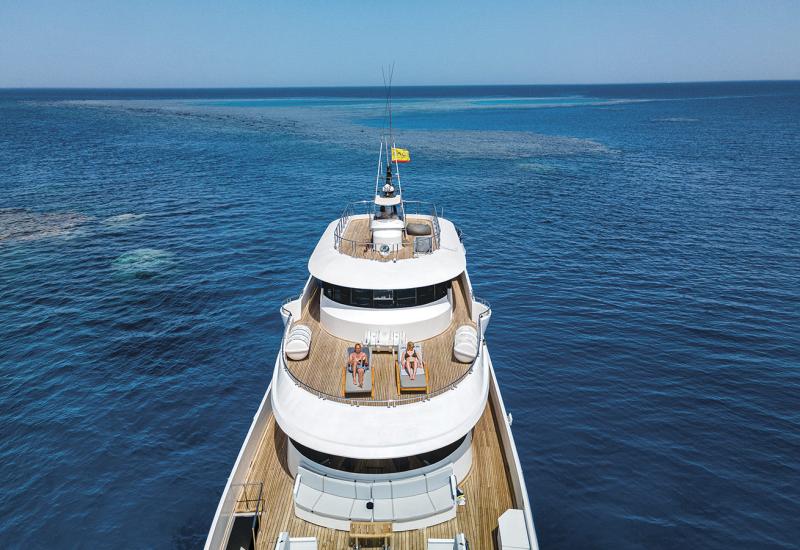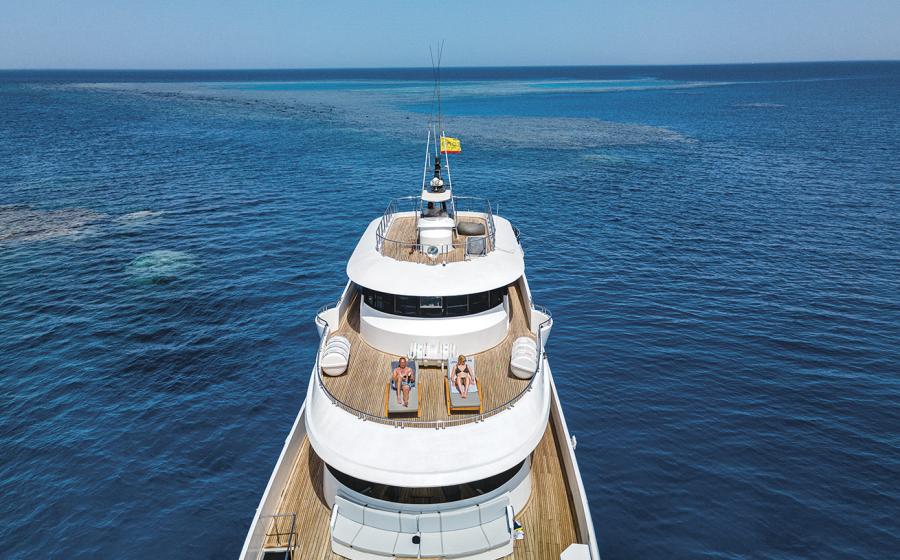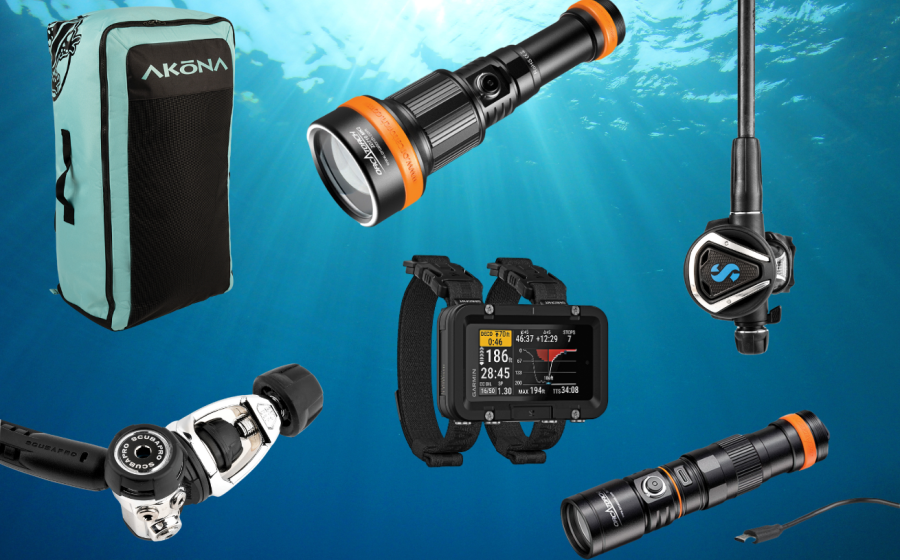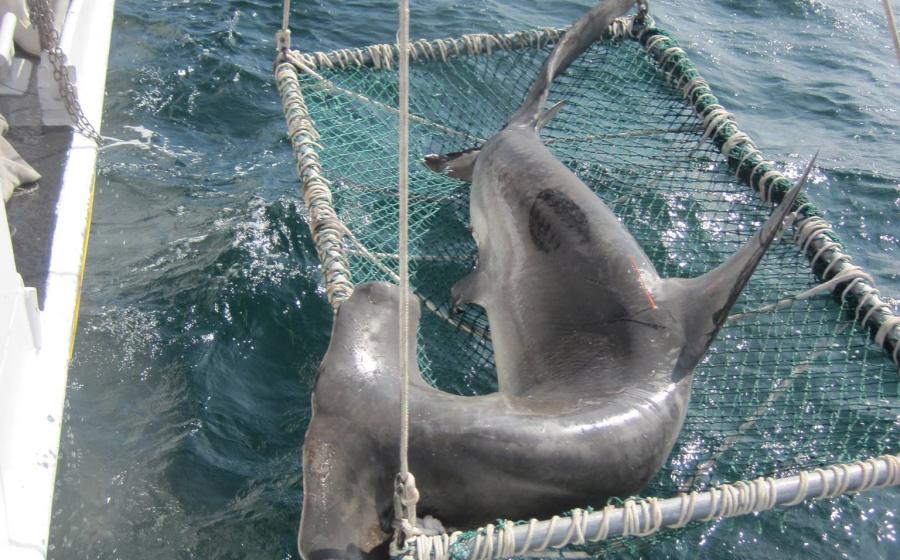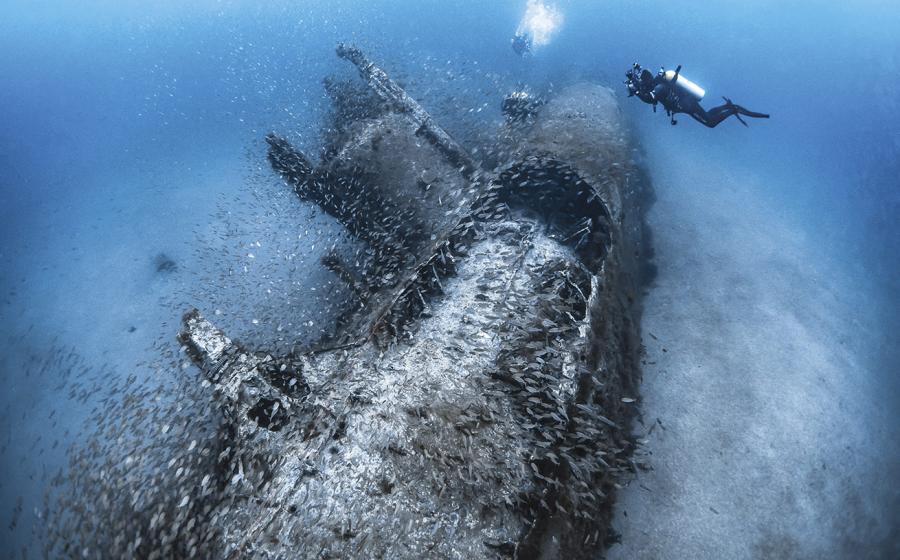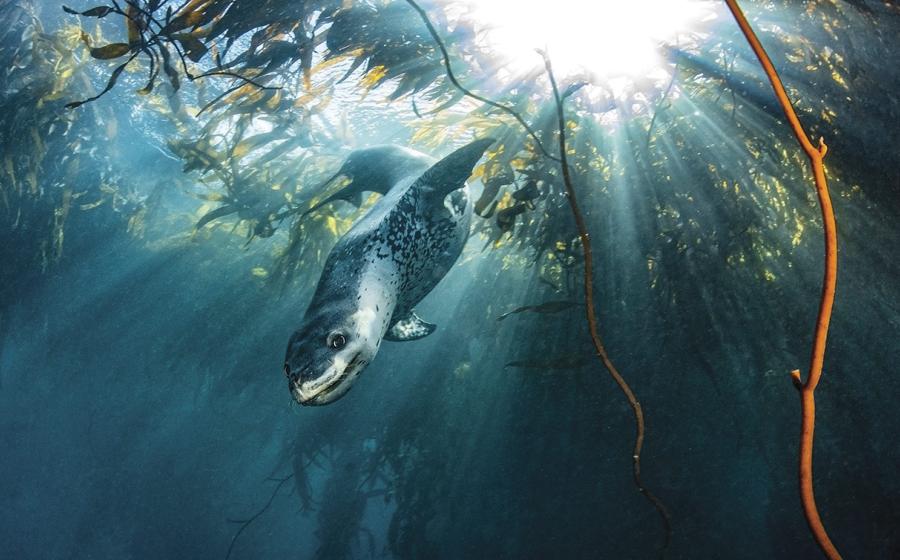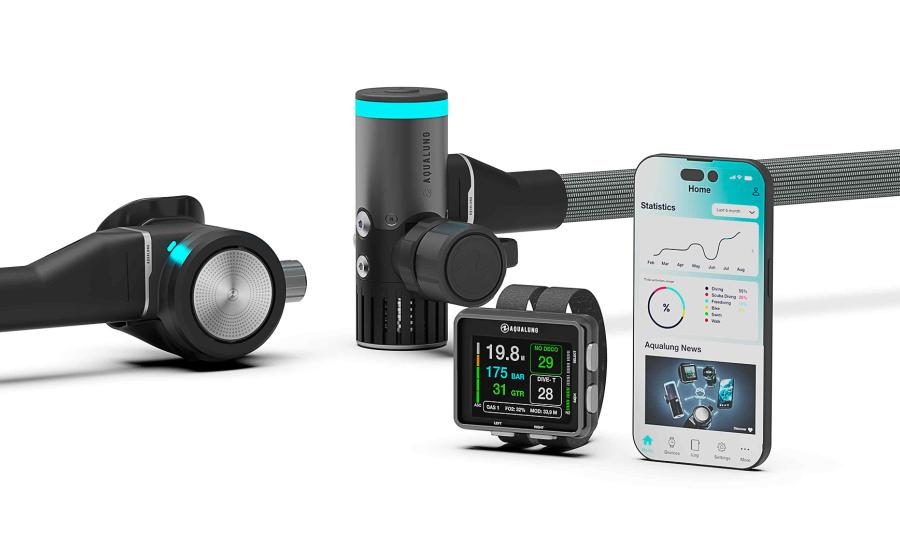What It's Like to Be an Octopus Researcher

Jennifer AdlerBennice collects an octopus in her floating lab to take a sample of its skin microbiome for testing.
The sand and rubble around South Florida’s Blue Heron Bridge is legendary for its diverse congregations of marine life, from seahorses and stargazers to pike blennies and octopuses. For Dr. Chelsea Bennice, it’s the octopuses that have kept her coming back to the site for more than a decade. As a research fellow at the Florida Atlantic University (FAU) Marine Science Laboratory, she specializes in octopus research, and among the dive community at the bridge, she’s known as “Octo-Girl.”
Bennice got her open-water certification while teaching marine science at Seacamp on Big Pine Key, shortly after finishing her undergraduate degree. She got her introduction to cephalopods—squids, cuttlefishes and octopuses — as a research assistant at the Marine Biological Laboratory in Woods Hole, Massachusetts.
Bennice has now spent more than 10 years researching octopuses. “My focus is behavioral ecology, so I’m looking at the animal’s behavior and how it ties into the environment where they live,” she explains. “I’ve also recently started to study their health, looking at topics such as their skin microbiome and how this may help keep the octopus healthy.”
A dive day for Bennice’s team starts hours before they get in the water, prepping gear and planning the dive. “Scientific diving requires a lot of equipment,” she says. “I usually have a camera with me, also a PVC pipe square structure called a quadrat used to identify a sample area when taking pictures.”
Related Reading: How to Dive Sund Rock, Washington
“If we’re collecting skin microbiome data, I actually take a floating lab,” she adds. “It's like a boogie board, which also serves as my dive flag, and there’s a cutout where I can put a perforated basket that I use to temporarily collect an octopus, swab their skin for bacteria, then release them.”
Blue Heron Bridge has a handful of octopus species, including the South Florida common octopus, the Caribbean reef octopus and the Atlantic longarm octopus. “The Atlantic longarm is definitely one of the coolest,” she says. “It’s a sand dweller—actually a type of mimic octopus. A lot of divers haven’t heard of it, and there is still a lot to be discovered about its behavior.”
As the lead scientific diver on her field work projects, Bennice has advanced, nitrox and rescue diver certifications.
For anyone interested in a career in marine biology, Bennice suggests considering multiple paths. “There’s the classic route of bachelor’s, master’s, Ph.D., leading to a professor position,” she says. “But there are also government careers as field biologists, dive safety officers get opportunities to work on many different research projects, and marine biology can open the door to careers in science journalism and communications.”
Science communication is something Bennice has incorporated into her own work by using social media channels like Instagram (@theoctogirl) to educate the public about octopuses. At FAU’s Marine Lab, she also leads a science outreach program called the Glenn W. and Cornelia T. Bailey Marine SEA Scholars. And she’s a scientific advisor for the educational nonprofit OctoNation.
“My goal is to bridge the gap between scientists and the community by sharing updates about my research and new scientific publications,” she says.
Related Reading: What Are the Best Schools to Study Marine Biology?
Job Requirements
Degree: Master’s or Ph.D. in marine science
Salary: Postdoctoral research fellowships start around $60,000/year.
Certifications: PADI Rescue Diver and Open Water Scuba Instructor, AAUS Scientific Diver


